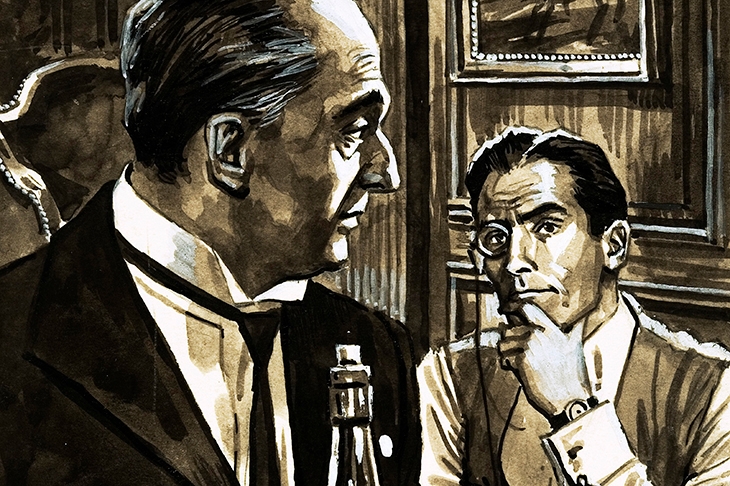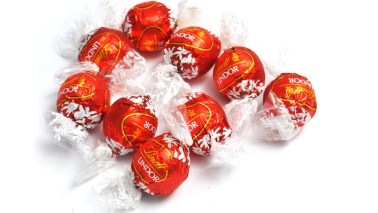In 2016, inspired by reports that Donald Trump’s butler had recommended the assassination of Barack Obama, Ben Schott wrote a scintillating squib, published in these pages, about Trump meeting Bertie Wooster. As he later noted in a diary column, it gave him the idea of writing a new Jeeves and Wooster novel.
Predictably, reassuringly, soothingly, Jeeves and the King of Clubs returns us to such idyllic haunts as Bertie’s flat in Berkeley Mansions, the Drones Club and Brinkley Court, Aunt Dahlia’s pile in Worcestershire, and to the company of the furious Sir Watkyn Bassett and his whimsical daughter Madeline, who is yet again engaged to Roderick Spode, 7th Earl of Sidcup.
It would appear to be the summer of 1939. Spode is still leader of the Black Shorts, but has had to give up Eulalie Soeurs, his Mayfair lingerie shop, ‘when it became impossible to reconcile his dreams of popular tyranny with designing ladies’ underwear’.
In his Defence of P.G. Wodehouse (1945), George Orwell observed a ‘complete lack — so far as one can judge from his printed works — of political awareness’. The Black Shorts obviously disprove Orwell, and Schott points up the political element, grafting on to the customary light operatic plot a thriller in the manner of John Buchan.
In The Code of the Woosters (1938), Bertie was able to blackmail Spode about Eulalie Soeurs because Jeeves had learnt of it from the club book at the Junior Ganymede. In Schott’s story, the club has become the hub of a spy ring, crucial to foiling the Axis powers. This introduces some not unwelcome pace and urgency.
Orwell was wrong about the politics, but right about the sex: ‘Nowhere in his books is there anything in the nature of a sex joke, which is an enormous sacrifice for a farcical writer.’








Comments
Join the debate for just £1 a month
Be part of the conversation with other Spectator readers by getting your first three months for £3.
UNLOCK ACCESS Just £1 a monthAlready a subscriber? Log in